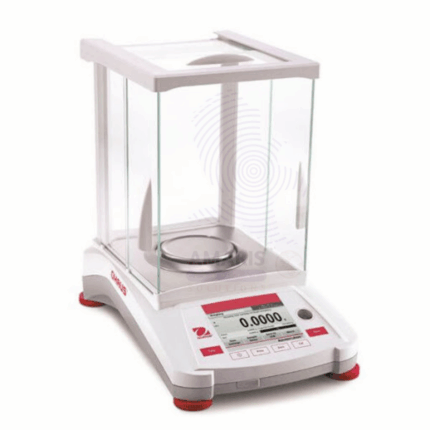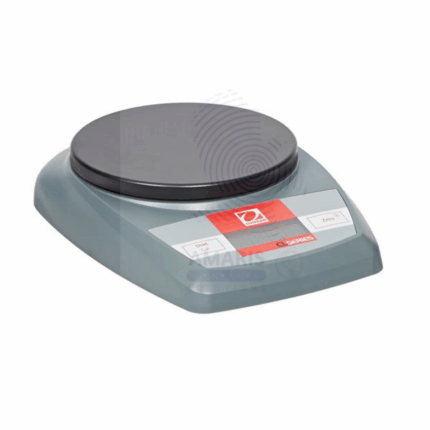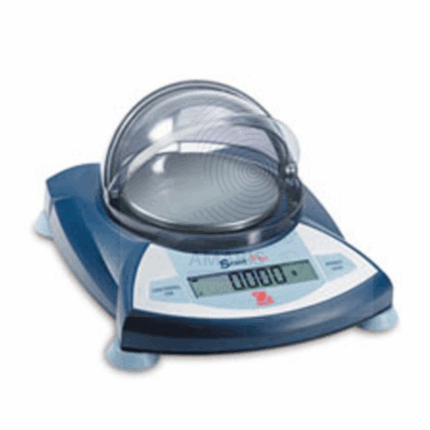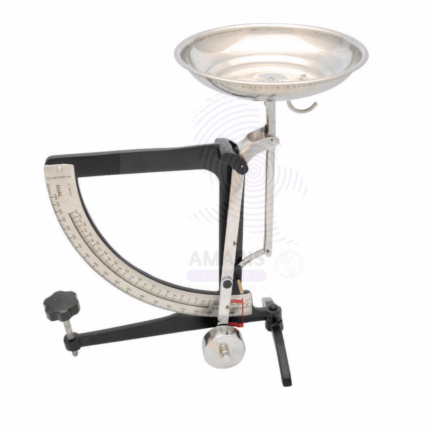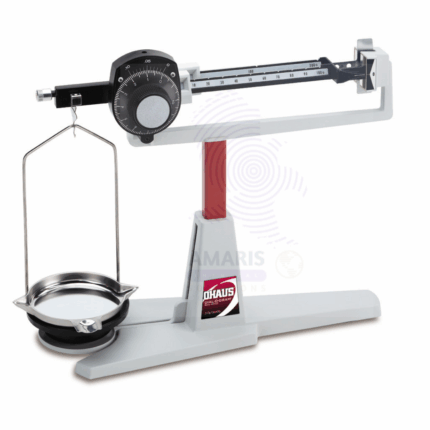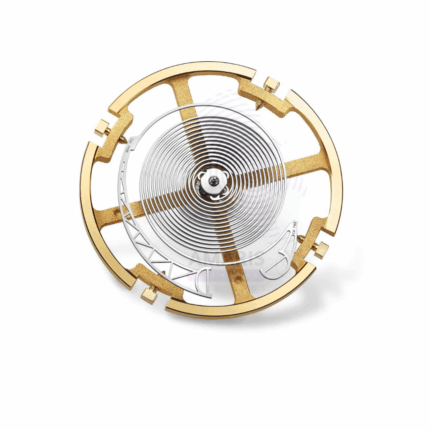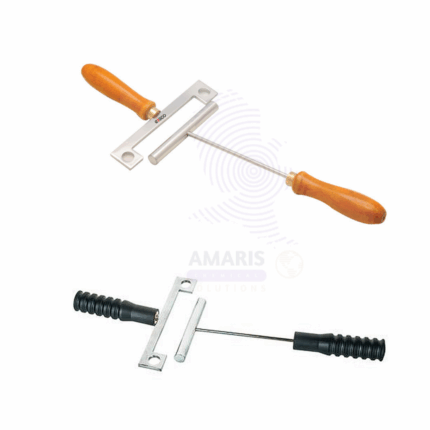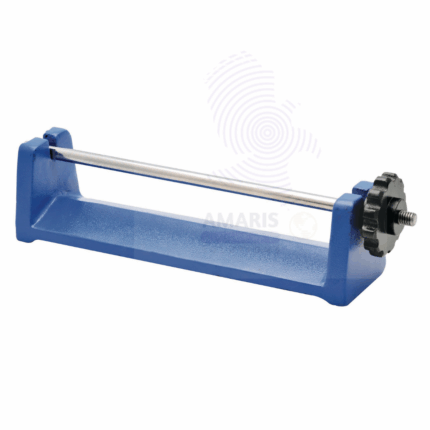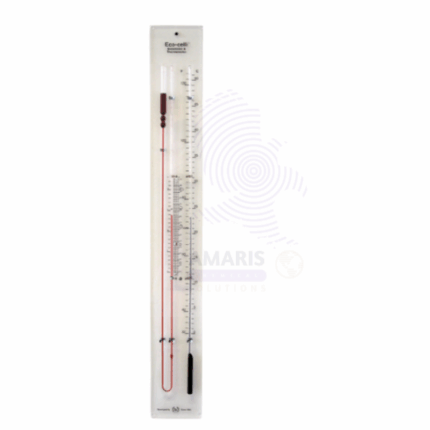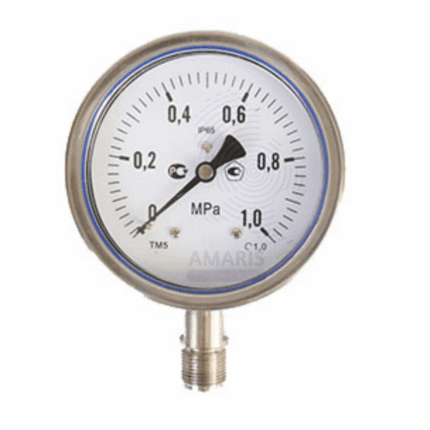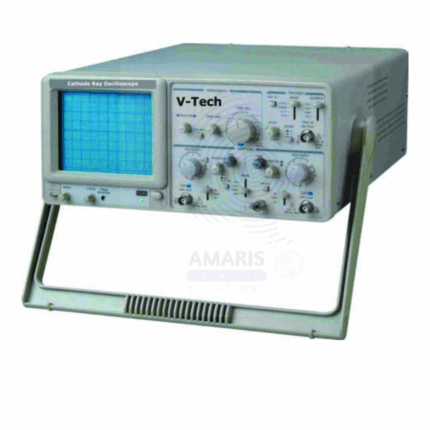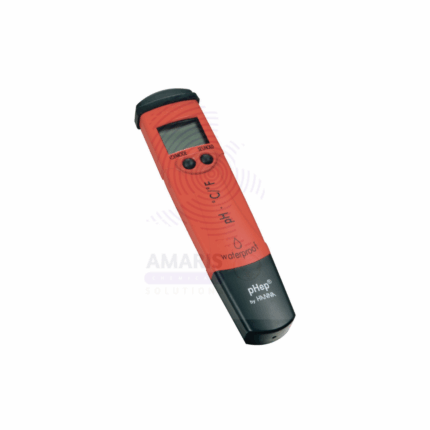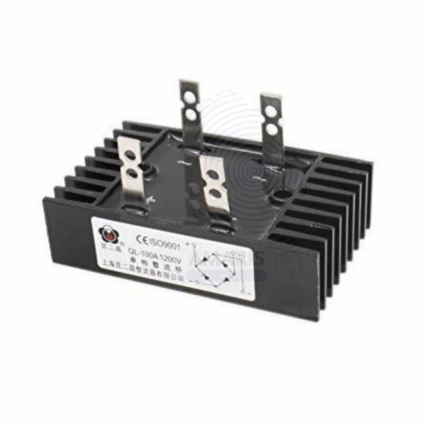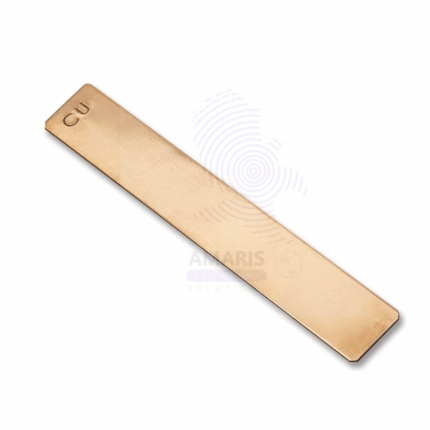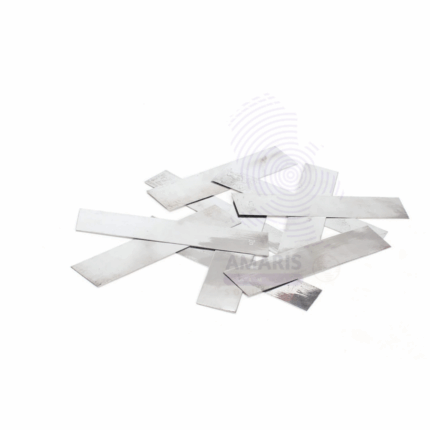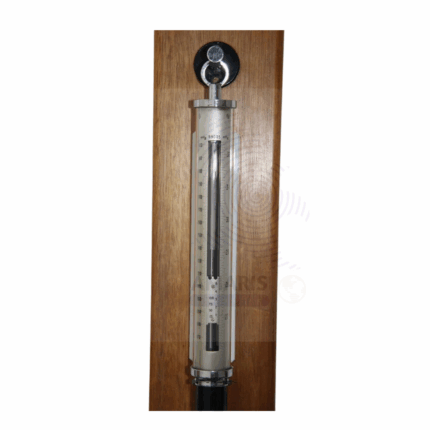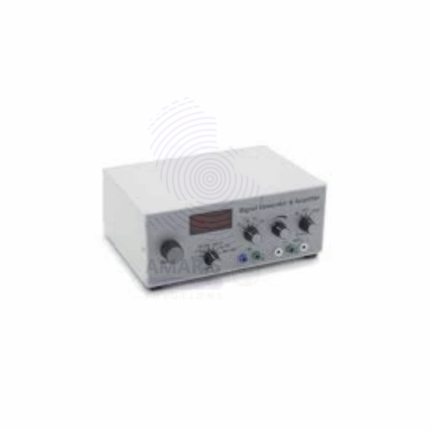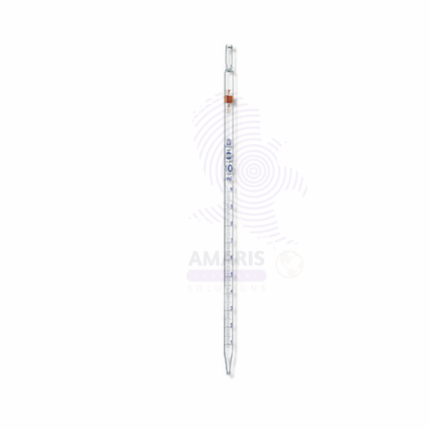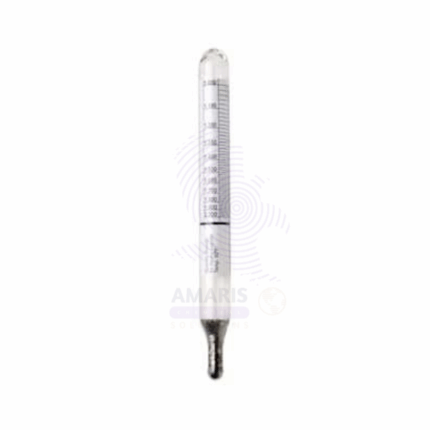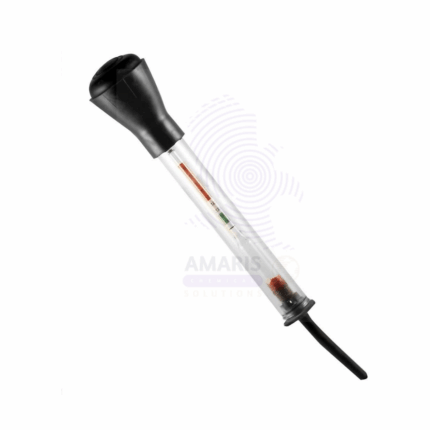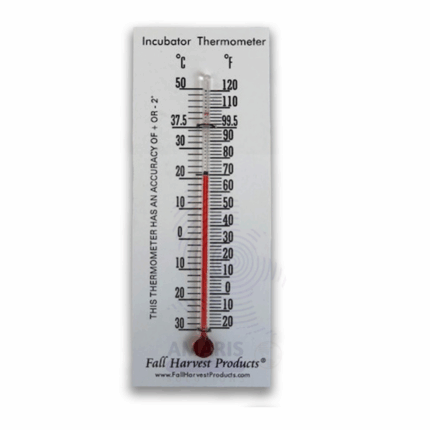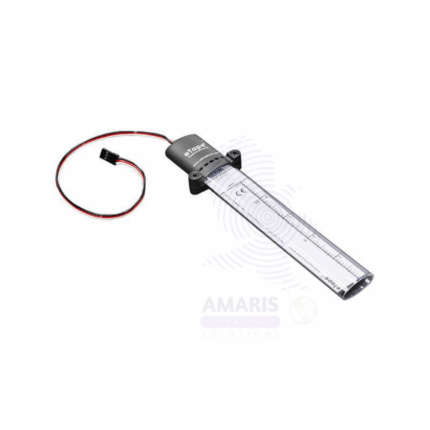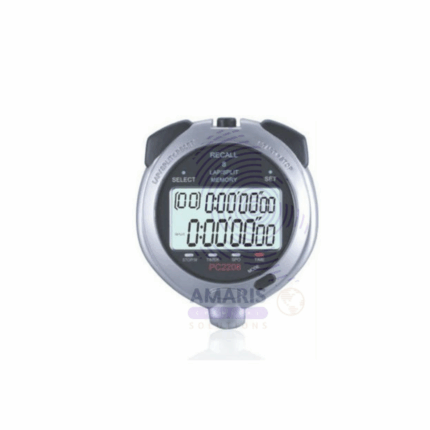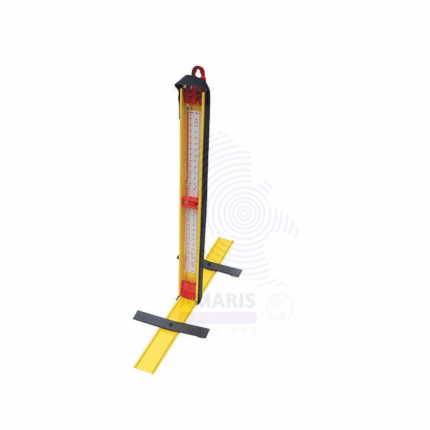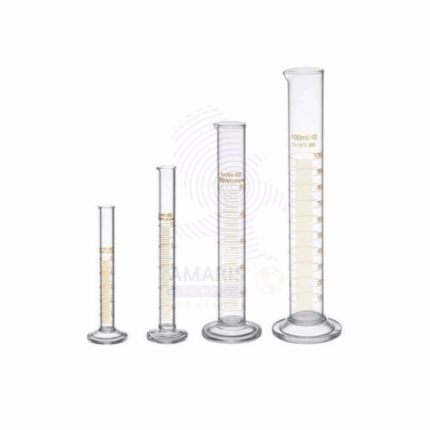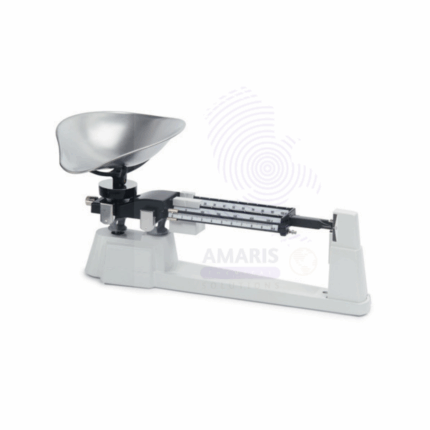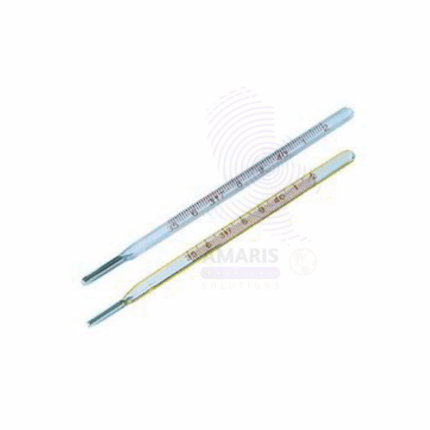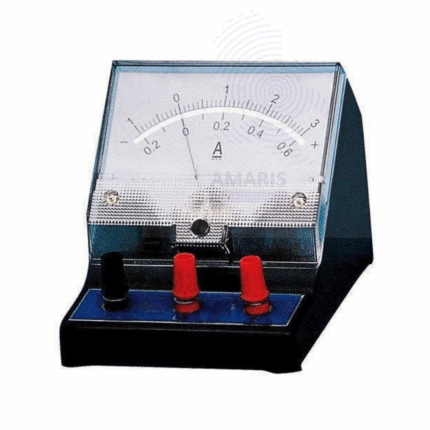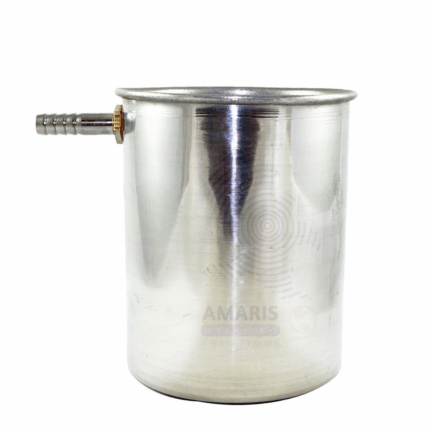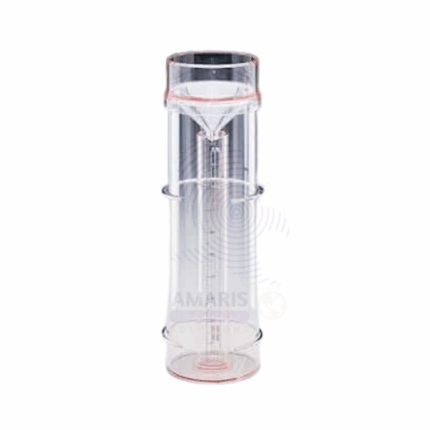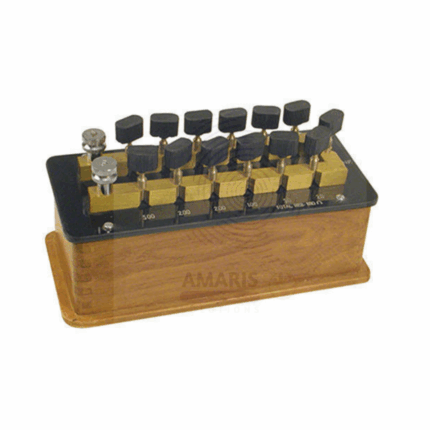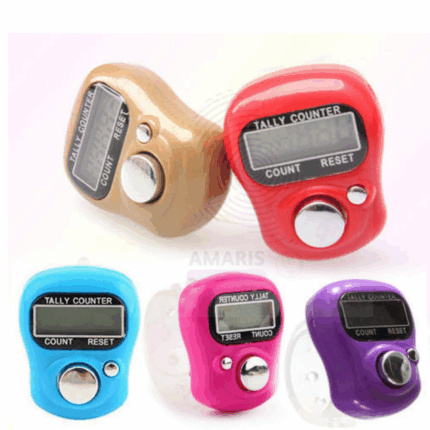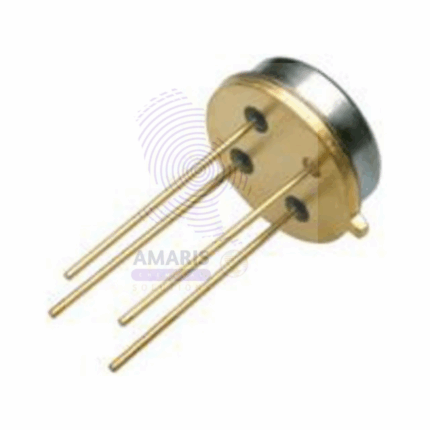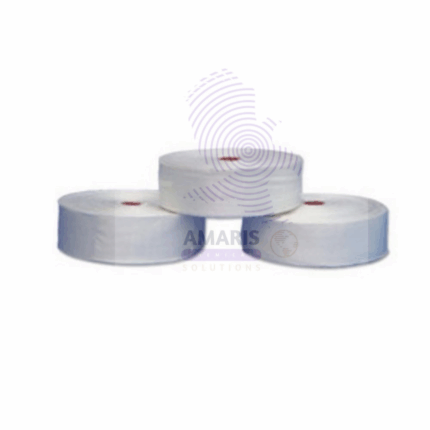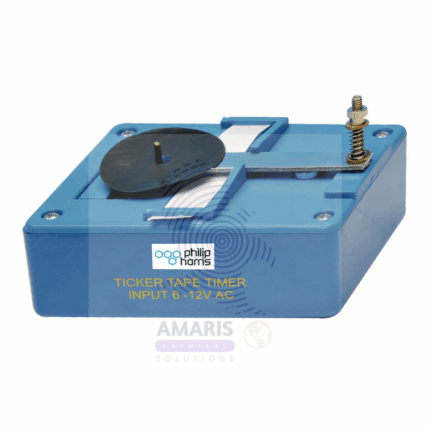
Measuring and analytical instruments are essential laboratory tools used to quantify, analyze, and characterize samples with precision. These devices ensure accurate data collection for research, quality control, and diagnostic purposes.Widely used in chemistry, biology, pharmaceuticals, environmental science, and clinical diagnostics for research, testing, and quality assurance
Balance Electronic Ohaus Adventurer
The Balance Electronic Ohaus Adventurer is a high-precision electronic weighing instrument designed for laboratory, educational, and industrial applications. It offers accurate and reliable measurement with user-friendly features including a backlit display, multiple weighing units, and advanced calibration options. This balance is suitable for general weighing tasks, formulation, and quality control processes where precision and ease of use are critical.
Balance Electronic Ohaus cl 200
The Balance Electronic Ohaus CL 200 is a high-precision electronic laboratory balance engineered for accuracy, reliability, and ease of use in diverse laboratory settings. It features a robust design with a clear backlit LCD display, allowing easy reading of measurements under various lighting conditions. The draft shield enhances weighing stability by minimizing the effect of air currents, ensuring precise results. With multiple weighing units, tare functionality, and user-friendly controls, this balance supports a wide range of applications in scientific research, quality control, education, and industrial processes. Its compact footprint and energy-efficient design make it ideal for routine weighing tasks, formulation, and analysis requiring high repeatability and fast stabilization. The balance is powered by an AC adapter or rechargeable battery, supporting both stationary and portable usage.
Balance Electronic Ohaus Scout Pro
The Balance Electronic Ohaus Scout Pro is a versatile, high-performance laboratory balance designed for precision weighing in demanding laboratory and industrial environments. Featuring a durable stainless steel housing, intuitive user interface, and a bright backlit LCD display, the Scout Pro offers fast, accurate measurements with high repeatability. It includes multiple weighing units, built-in applications such as parts counting, check weighing, formulation, and dynamic weighing, making it ideal for a broad range of scientific, educational, and quality control tasks. Its robust design supports both bench-top and portable use, powered by AC or rechargeable battery, providing flexibility and reliability in various operational settings.
Balance lever
The Balance Lever is a mechanical device used to measure weight or force through a system of levers and fulcrums. Designed for precision and durability, it provides accurate weighing without the need for electrical power, making it ideal for basic laboratory use, educational demonstrations, and situations where electronic balances are impractical. The lever balance operates on the principle of equilibrium and mechanical advantage, offering reliable performance in a variety of settings. Constructed from sturdy materials, it ensures long-lasting service and consistent accuracy.
Balance Mechanical Ohaus Centre
Balance Mechanical Ohaus Centre is a high-precision mechanical balance designed for laboratory and industrial use. Featuring a central zero adjustment, this balance enables accurate measurement of small to medium-weight samples with fine calibration control. Constructed with durable, corrosion-resistant materials, it delivers reliable and consistent weighing results without requiring electrical power. Its simple mechanical design ensures easy operation and maintenance, making it suitable for research laboratories, quality control departments, and industrial environments where precise manual weighing is essential.
Balance Spring
The Balance Spring is a fundamental mechanical component used in balances and scales to measure weight through elastic deformation. It converts force into measurable displacement, enabling precise weight determination in various laboratory and industrial balances. Manufactured from high-quality, durable metals with excellent elastic properties, the balance spring ensures consistent performance and longevity under repeated use. It is essential for maintaining accuracy and reliability in mechanical weighing devices.
Bourdan Gauge
The Bourdon Gauge is a mechanical pressure measuring instrument widely used to measure medium to high pressure of gases and liquids in various laboratory and industrial applications. It consists of a curved, hollow metal tube which straightens as pressure increases, causing a pointer to move over a calibrated scale for easy reading. Known for its durability, reliability, and precision, the Bourdon Gauge is essential in pressure monitoring, process control, and safety systems. It operates without electrical power, making it ideal for harsh environments.
Cathode ray oscilloscope
Cartesian Divers are simple physics demonstration devices used to illustrate principles of buoyancy, pressure, and gas laws. Typically consisting of small, sealed, air-filled capsules submerged in water within a sealed container, these divers rise and sink in response to changes in external pressure. Widely used in educational laboratories for teaching fluid mechanics and gas behavior, Cartesian Divers provide hands-on visualization of fundamental scientific concepts.
Color Filters
Color Filters are optical components designed to selectively transmit light of specific wavelengths while absorbing or reflecting others. These filters are used in various laboratory and industrial applications to isolate particular colors for scientific experiments, photography, microscopy, and optical analysis. Manufactured from high-quality glass or plastic materials, color filters ensure consistent performance with minimal distortion and high durability.
Concave and convex lens
Concave and Convex Lenses are essential optical components used to manipulate light by refraction. A convex lens is thicker at the center and converges light rays to a focal point, while a concave lens is thinner at the center and diverges light rays. These lenses are fundamental in various scientific experiments, optical instruments, and educational demonstrations to study image formation, focal length, magnification, and light behavior. Manufactured with high-quality optical glass or plastic, they offer clarity and precision necessary for laboratory and industrial applications.
Concave mirrors
Product Description
Concave Mirrors are curved reflective surfaces that converge light rays to a focal point. They are widely used in scientific experiments and optical devices to focus light and form real or virtual images depending on the object's position relative to the focal length. Made from high-quality polished glass or metal with a reflective coating, these mirrors provide precise image formation essential for laboratory and industrial applications in optics and physics.
conductivity rods
Conductivity rods are laboratory instruments used to measure the electrical conductivity of liquids, which indicates the ionic content and purity of a solution. Typically made from corrosion-resistant materials like stainless steel or graphite, these rods serve as electrodes immersed in liquid samples to detect the flow of electric current. Conductivity rods are essential for water quality testing, chemical analysis, and various industrial processes where monitoring solution conductivity is critical.
Deionizer with 4 elga cans
Deionizer with 4 Elga Cans is a high-capacity water purification system engineered for continuous production of deionized water in laboratory and industrial environments. The system uses four Elga mixed-bed ion exchange cartridges working in parallel or series to ensure extended operation, high throughput, and superior water quality. It removes dissolved ions and minerals effectively, producing ultra-low conductivity water ideal for sensitive analytical, biochemical, and production processes. The modular setup allows for easy replacement and maintenance, making it a reliable solution for facilities with high-purity water demands.
Digital pH Meter
A Digital pH Meter is a high-precision instrument designed to measure the acidity or alkalinity of liquid samples with accuracy and ease. Utilizing an electrode and electronic circuitry, it measures the voltage difference caused by hydrogen ion activity in a solution and converts it into a pH value displayed digitally. These devices are available in various formats—handheld, benchtop, waterproof, or pen-style—and often include advanced features such as automatic temperature compensation (ATC), backlit displays, auto-calibration, and data logging capabilities. Digital pH meters are vital tools across laboratories, environmental monitoring setups, industrial production lines, agricultural operations, food and beverage manufacturing, and water treatment facilities. They ensure reliable pH readings for maintaining chemical balance, compliance, and product quality in numerous applications.
Diode Mounted
Diode Mounted is a semiconductor component securely fixed onto a base or housing for stable operation in electronic and laboratory applications. These diodes are typically affixed to a heat sink, PCB, or specialized mount to facilitate thermal management, structural stability, and electrical connectivity. Mounted diodes are designed to ensure consistent current regulation, signal rectification, or light emission (in the case of LEDs) with enhanced performance and safety. These components are essential in laboratory test circuits, power supply systems, rectifier assemblies, and various instrumentation applications. Their mounted format makes them suitable for repeated testing, integration into complex systems, and controlled experimentation where component placement consistency is critical.
Electrode Copper Plate
Electrode Copper Plate is a high-purity copper sheet designed for use as an electrode in various electrical, electrochemical, and industrial applications. Known for its excellent electrical conductivity, thermal stability, and corrosion resistance, copper plates serve as reliable electrodes in electroplating, battery manufacturing, and electrical circuitry. These plates are manufactured with precise thickness and smooth surfaces to ensure efficient current flow and optimal performance. Copper electrodes are widely used in laboratories, manufacturing plants, and industrial processes that require durable and efficient electrical conductors.
Electrode Copper Rod
Electrode Copper Rod is a high-purity copper rod used primarily as an electrode in various electrical, electrochemical, and industrial applications. Known for its superior electrical conductivity, thermal stability, and corrosion resistance, copper rods are essential components in electroplating, battery manufacturing, welding, and electrical circuitry. Manufactured to precise dimensions with smooth surfaces, these rods ensure efficient current transmission and durability under demanding conditions. They are widely utilized in laboratories, manufacturing industries, and research facilities requiring reliable conductive electrodes.
Electrode Zinc Plate
Electrode Zinc Plate is a high-quality zinc metal sheet designed for use as an electrode in various electrochemical applications, including batteries, corrosion protection, and electroplating. Zinc plates offer good electrical conductivity and act as sacrificial anodes in cathodic protection systems to prevent corrosion of metal structures. Manufactured with uniform thickness and smooth surfaces, these plates are widely used in lead-acid batteries, galvanic cells, and industrial electrolysis. Zinc electrodes are essential components in chemical processing, environmental protection, and laboratory research.
Frequency and Signal Generator
Frequency and Signal Generator is a precision electronic instrument used to generate electrical signals of varying frequencies, waveforms, and amplitudes for testing, designing, and troubleshooting electronic devices and systems. It typically produces sine, square, triangle, and other waveform signals with adjustable frequency and output levels. Widely used in laboratories, research and development, educational institutions, and industrial testing environments, this device helps in analyzing circuit behavior, calibrating equipment, and simulating signals for communication, audio, and control systems.
Galvanometer Zero Center
Galvanometer Zero Center is a precision instrument used to detect and measure small electric currents by deflecting a needle from a zero center position. Designed with a symmetrical scale balanced around the zero point, it enables accurate detection of current direction and magnitude. Constructed with sensitive coils and magnetic systems, this galvanometer is widely used in physics laboratories, electrical testing, and instrumentation for experiments requiring precise current measurement and analysis.
Graduated Pipette
Graduated Pipette is a precise laboratory instrument designed for measuring and transferring specific volumes of liquids. Typically made from chemically resistant borosilicate glass or plastic, it features clear graduated markings along its length for accurate volume measurement. Used extensively in analytical chemistry, biology, and medical laboratories, graduated pipettes ensure reliable liquid handling during titrations, solution preparations, and sample analysis. The pipette’s narrow design allows for controlled dispensing, and it often requires a pipette bulb or filler for safe operation.
Hydrometer Heavy and Light
Hydrometer Heavy and Light is a laboratory instrument designed to measure the relative density (specific gravity) of liquids. It consists of a sealed, calibrated glass tube with a weighted bulb at the bottom to ensure vertical floating. The “heavy” hydrometer is used for measuring denser liquids, while the “light” hydrometer is used for measuring less dense liquids. These instruments are essential in laboratories, industry, and education for determining concentration levels, purity, and solution characteristics across various fluid types. Each hydrometer is calibrated to float at a specific level based on the liquid's density, making it a reliable tool for quick and accurate measurements.
Hydrometer Simple Battery Tester
Hydrometer Simple Battery Tester is a compact, user-friendly device designed to measure the specific gravity of electrolyte solutions in lead-acid batteries. It consists of a transparent body, a suction bulb, and a calibrated float indicator that shows the state of battery charge based on electrolyte density. This simple hydrometer provides a fast and visual way to assess the health and charge level of automotive, industrial, or backup power batteries. Constructed from chemically resistant plastic or glass, it is durable, portable, and ideal for both professional and personal battery maintenance applications.
Incubator Thermometer
Incubator Thermometer is a precision temperature-measuring instrument specifically designed for use in laboratory and medical incubators. It provides accurate and consistent readings within the temperature range typically required for biological growth, microbial cultures, egg incubation, or chemical reactions. These thermometers are usually made from high-grade glass or digital components and come with a clear, easy-to-read scale calibrated in degrees Celsius (°C). Some models may be filled with alcohol or other safe fluids instead of mercury. They are essential for monitoring and maintaining optimal incubation conditions to ensure experimental accuracy and biological viability.
Lab liquid level
The Lab Liquid Level is a precision measuring instrument used to detect and indicate the level of liquids in laboratory containers, tanks, or systems. Designed for accuracy and ease of use, it helps scientists and technicians monitor fluid levels during experiments, processing, or storage. Typically constructed from chemically resistant materials, Lab Liquid Levels are compatible with various liquids including corrosive and volatile substances. They are essential tools for maintaining controlled conditions in chemical, pharmaceutical, and research laboratories.
Laboratory stop watch
The Laboratory Stop Watch is a precision timing device used in laboratories to accurately measure time intervals during experiments and processes. Designed for reliability and ease of use, it features start, stop, and reset functions, often with digital or analog displays. This stopwatch is essential for kinetic studies, reaction timing, process control, and any experiment requiring precise time measurement. Durable and portable, it is suitable for various scientific, educational, and industrial laboratory applications.
Litmus Paper Blue
Litmus Paper Blue is a pH indicator paper used to detect acidic substances. It is impregnated with litmus dye extracted from lichens, which changes color when exposed to acidic or basic environments. Blue litmus paper turns red under acidic conditions (pH < 4.5) and remains blue in neutral or alkaline solutions. It is widely used in laboratories, education, environmental testing, and industrial processes for quick and easy pH testing.
Litmus paper red 1 packet
Litmus paper red 1 packet is a specialized pH indicator paper impregnated with red litmus dye derived from natural lichens. It serves as a quick and reliable qualitative tool for detecting alkaline (basic) conditions in various liquids and substances. Upon contact with an alkaline solution, the red paper undergoes a distinct color change to blue, signaling a pH above approximately 8.3. In neutral or acidic solutions, the paper retains its red color. This simple yet essential laboratory reagent is widely used in chemistry, biology, environmental science, clinical diagnostics, food industry, and educational settings for rapid acidity and alkalinity testing without the need for sophisticated instrumentation.
Red litmus paper is highly valued for its ease of use, portability, and cost-effectiveness, making it ideal for field testing, classroom demonstrations, and routine lab work. It provides immediate visual feedback, which is crucial for quick decision-making during experiments, quality control processes, and environmental monitoring. Packaged typically in convenient strips or sheets within moisture-proof packets, the paper is protected from contamination and degradation, ensuring long shelf life and consistent performance.
Manometer on stand
The Manometer on Stand is a precision laboratory instrument used to measure pressure differences in gases or liquids. It consists of a U-shaped or straight tube partially filled with a liquid (commonly mercury, water, or oil) mounted securely on a stable stand for ease of use and accurate readings. The manometer operates based on the principle of balancing pressure against the height of the liquid column. It is widely used in physics and engineering laboratories for experiments involving fluid mechanics, gas laws, and pressure calibration. The stand provides stability and convenient placement during measurements.
measuring cylinder glass
The Measuring Cylinder Glass is a fundamental laboratory apparatus specifically engineered for the precise measurement of liquid volumes. Constructed from high-quality, chemically resistant borosilicate glass, it ensures durability, resistance to chemical corrosion, and clarity for optimal visibility of liquid levels. The cylindrical shape provides a stable base and ergonomic design for ease of handling and pouring. Graduated volume markings, typically etched or printed with high contrast, allow accurate reading of liquid quantities down to the milliliter, supporting quantitative experiments and solution preparations. The transparent nature of the glass facilitates observation of the meniscus, which is critical for accuracy in volume measurement. Measuring cylinders vary in size, commonly ranging from small (10 mL) to large capacities (1000 mL or more), meeting diverse laboratory needs. They are widely used across chemical, biological, medical, educational, and industrial laboratories for tasks including volumetric analysis, solution preparation, and quality control. Their ability to withstand thermal fluctuations and autoclaving processes also makes them suitable for sterilized environments. Measuring Cylinder Glass is essential for maintaining precision and reproducibility in experimental and routine laboratory procedures.
Mechanical Balance
The Mechanical Balance is a precision laboratory instrument designed to measure the mass of objects through mechanical means. It operates using a system of levers, beams, and calibrated weights to determine mass with high accuracy without requiring electrical power. Mechanical balances typically feature a robust metal frame, a beam with a central pivot, and sliding weights or poises for balancing. The instrument provides reliable and repeatable mass measurements essential for quantitative analysis in chemistry, biology, physics, and industrial quality control. Known for its durability and ease of maintenance, the mechanical balance is widely used in educational settings, research laboratories, and production environments where precise weighing is necessary. Its mechanical operation ensures functionality even in environments where electronic devices may be unsuitable due to power constraints or interference.
Mercury thermometer
The Mercury Thermometer is a precise laboratory instrument designed for accurate temperature measurement using mercury as the thermometric fluid. It consists of a narrow, sealed glass tube containing mercury that expands and contracts with temperature changes, moving along a calibrated scale etched or printed on the glass. Mercury thermometers offer excellent thermal conductivity and stability, enabling precise readings over a wide temperature range typically from -39°C to 357°C (the freezing and boiling points of mercury). The clear glass casing allows easy observation of mercury levels, while the robust design resists breakage under normal laboratory conditions. Mercury thermometers are widely used in scientific research, medical labs, industrial processes, and educational settings for their reliability and accuracy. Despite their benefits, mercury thermometers require careful handling due to the toxicity of mercury, and many labs are transitioning to safer alternatives in compliance with environmental regulations.
Millie ammeter
A Millie Ammeter is a precision laboratory instrument used to measure very small electrical currents in the milliampere (mA) range. It is essential for experiments and procedures requiring accurate current measurements, particularly in physics and electronics labs. The device typically features a sensitive needle gauge or digital display, calibrated for fine resolution of low current levels. Compact and robust, millie ammeters are designed for easy integration into circuits and offer reliable performance for research, educational, and industrial applications.
OVERFLOW CAN
An Overflow Can is a laboratory apparatus designed to measure the volume of irregularly shaped solid objects using the water displacement method. It typically consists of a container with a spout or outlet near the top to allow excess water to overflow when a solid object is submerged inside. Overflow cans are usually made from durable, chemically resistant materials such as plastic or stainless steel. This device is essential in physics and material science laboratories for determining volume and density accurately by capturing displaced fluid and measuring its
RAIN GAUGE
A Rain Gauge is a precise meteorological instrument designed to measure the amount of liquid precipitation (rainfall) over a set period, typically in millimeters or inches. It consists of a collection funnel directing water into a graduated measuring container or a tipping bucket mechanism that records rainfall digitally. Constructed from durable materials such as glass, plastic, or corrosion-resistant metals, rain gauges are built to endure outdoor conditions including sun exposure, wind, and rain. Their design allows for accurate, easy-to-read measurements to support weather forecasting, agricultural planning, environmental monitoring, and hydrological research. Rain Gauges are fundamental tools in laboratories focused on environmental science, meteorology, and water resource management.
RESISTANCE BOX PLUG TYPE
Resistance Box Plug Type is a precision electrical component used extensively in physics and electrical engineering laboratories. It comprises an insulated box containing a series of fixed-value resistors arranged in circuits accessible via plug-in terminals. By inserting plugs into designated sockets, users can combine resistors in series or parallel to achieve desired resistance values for experimental purposes. This equipment is essential for teaching Ohm’s Law, circuit analysis, and calibration of electrical devices. Constructed with durable, corrosion-resistant materials and designed for high accuracy, the resistance box supports reliable, repeatable laboratory experiments and research.
Resistance Coil
Resistance Coil is a fundamental laboratory apparatus consisting of a wire coil made from materials with a known resistance, typically nichrome or similar alloys. It is widely used in physics and electrical engineering laboratories to study electrical resistance, heating effects, and circuit behavior. The coil’s wire length and thickness determine its resistance value, enabling controlled experiments involving Ohm’s Law, Joule heating, and energy dissipation. Resistance Coils are designed to withstand electrical current and heat without significant degradation, making them ideal for demonstrations, experiments, and calibration tasks in laboratory settings.
Table top pH meter
Product Description
The Table Top pH Meter is a precision electronic instrument designed to accurately measure the pH level of liquids in laboratory settings. Featuring a robust digital display and sensitive glass electrode, it provides fast, reliable, and easy-to-read pH measurements essential for chemical analysis, quality control, and research applications. The instrument typically includes calibration features, temperature compensation, and data hold functions to ensure accurate and reproducible results. Its sturdy tabletop design offers stability and convenience during extended use, making it a vital tool for analytical, environmental, pharmaceutical, and educational laboratories.
Tally counter
Product Description
A Tally Counter is a mechanical or digital handheld device designed for counting and recording numbers in laboratory, industrial, or field applications. It features a simple button or lever mechanism to increment counts and a clear display to show the current total. Often used for repetitive counting tasks, tally counters ensure accuracy and efficiency by eliminating manual errors. Their compact, durable design allows for easy portability and long-term use in settings such as sample counting, inventory checks, and experimental data collection.
Thermopiles
Product Description
Thermopiles are electronic devices composed of multiple thermocouples connected in series or parallel to increase the output voltage generated from temperature differences. They convert thermal energy into electrical energy, enabling precise temperature measurement and heat flux detection. Thermopiles are widely used in laboratory instruments, infrared sensors, gas analyzers, and thermal imaging equipment due to their sensitivity and ability to measure temperature without direct contact. Their robust construction allows them to operate over a broad temperature range and in harsh environments.
Ticker tape roll
Product Description
Ticker Tape Roll is a continuous paper strip used historically in laboratories and offices for recording data from electromechanical devices such as ticker tape machines, strip chart recorders, and scientific instruments. The tape records numerical or graphical information through printed or punched marks, enabling the documentation of measurements like time, temperature, or other variables. Made from durable, smooth, white paper, the tape is designed to feed easily through devices without jamming or tearing. Though largely replaced by digital methods, ticker tape rolls are still used in some educational, experimental, and archival applications.
Ticker tape timer
Product Description
A Ticker Tape Timer is a mechanical or electromechanical device used in laboratories and educational settings to measure time intervals by marking a continuous ticker tape at regular increments. It works by producing dots or punches on the tape, allowing precise tracking of elapsed time during experiments involving motion, reaction times, or other time-dependent processes. The timer is compatible with standard ticker tapes and provides an analog method for recording temporal data, facilitating analysis of speed, acceleration, or time durations in physics and other scientific experiments.
Whetstone bridge with pencil jockey
Product Description
The Whetstone Bridge with Pencil Jockey is a precision electrical instrument used to measure unknown electrical resistances by balancing two legs of a bridge circuit. It consists of a robust base, a wire or slide wire of known resistance, and a movable contact known as the pencil jockey to slide along the wire for accurate balancing. This apparatus is widely used in physics and electrical engineering laboratories for teaching and research purposes, helping students and technicians to understand the principles of Wheatstone bridge circuits and precise resistance measurements.


 Preservatives(food)
Preservatives(food) Flavor Enhancers
Flavor Enhancers Acidulants
Acidulants Sweeteners
Sweeteners Antioxidants
Antioxidants Colorants(food)
Colorants(food) Nutraceutical Ingredients (food)
Nutraceutical Ingredients (food) Nutrient Supplements
Nutrient Supplements Emulsifiers
Emulsifiers
 Collectors
Collectors Dust Suppressants
Dust Suppressants Explosives and Blasting Agents
Explosives and Blasting Agents Flocculants and Coagulants
Flocculants and Coagulants Frothers
Frothers Leaching Agents
Leaching Agents pH Modifiers
pH Modifiers Precious Metal Extraction Agents
Precious Metal Extraction Agents
 Antioxidants(plastic)
Antioxidants(plastic) Colorants (Pigments, Dyes)
Colorants (Pigments, Dyes) Fillers and Reinforcements
Fillers and Reinforcements Flame Retardants
Flame Retardants Monomers
Monomers Plasticizers
Plasticizers Polymerization Initiators
Polymerization Initiators Stabilizers (UV, Heat)
Stabilizers (UV, Heat)
 Antifoaming Agents
Antifoaming Agents Chelating Agents
Chelating Agents Coagulants and Flocculants
Coagulants and Flocculants Corrosion Inhibitors
Corrosion Inhibitors Disinfectants and Biocides
Disinfectants and Biocides Oxidizing Agents
Oxidizing Agents pH Adjusters
pH Adjusters Scale Inhibitors( water)
Scale Inhibitors( water)
 Antioxidants(cosmetic)
Antioxidants(cosmetic) Emollients
Emollients Fragrances and Essential Oils
Fragrances and Essential Oils Humectants
Humectants Preservatives
Preservatives Surfactants(cosmetic)
Surfactants(cosmetic) Thickeners
Thickeners UV Filters
UV Filters
 Fertilizers
Fertilizers Soil Conditioners
Soil Conditioners Plant Growth Regulators
Plant Growth Regulators Animal Feed Additives
Animal Feed Additives Biostimulants
Biostimulants Pesticides (Herbicides, Insecticides, Fungicides)
Pesticides (Herbicides, Insecticides, Fungicides)
 Active Pharmaceutical Ingredients (APIs)
Active Pharmaceutical Ingredients (APIs) Excipients
Excipients Solvents(pharmaceutical)
Solvents(pharmaceutical) Antibiotics
Antibiotics Antiseptics and Disinfectants
Antiseptics and Disinfectants Vaccine Adjuvants
Vaccine Adjuvants Nutraceutical Ingredients (pharmaceutical)
Nutraceutical Ingredients (pharmaceutical) Analgesics & Antipyretics
Analgesics & Antipyretics
 Analytical Reagents
Analytical Reagents Solvents(lab)
Solvents(lab) Chromatography Chemicals
Chromatography Chemicals Spectroscopy Reagents
Spectroscopy Reagents microbiology-and-cell-culture-reagents
microbiology-and-cell-culture-reagents Molecular Biology Reagents
Molecular Biology Reagents Biochemical Reagents
Biochemical Reagents Inorganic and Organic Standards
Inorganic and Organic Standards Laboratory Safety Chemicals
Laboratory Safety Chemicals Specialty Laboratory Chemicals(Special Laboratory Equipment)
Specialty Laboratory Chemicals(Special Laboratory Equipment)
 Demulsifiers
Demulsifiers Hydraulic Fracturing Fluids
Hydraulic Fracturing Fluids Scale Inhibitors(oil)
Scale Inhibitors(oil) Surfactants(oil)
Surfactants(oil) Drilling Fluids
Drilling Fluids
 Dyes and Pigments
Dyes and Pigments Bleaching Agents
Bleaching Agents Softening Agents
Softening Agents Finishing Agents
Finishing Agents Antistatic Agents
Antistatic Agents
 Admixtures
Admixtures Waterproofing Agents
Waterproofing Agents Sealants and Adhesives
Sealants and Adhesives Curing Compounds
Curing Compounds Concrete Repair Chemicals
Concrete Repair Chemicals Anti-Corrosion Coatings
Anti-Corrosion Coatings
 Surfactants(cleaning)
Surfactants(cleaning) Builders
Builders Enzymes
Enzymes Solvents (Cleaning)
Solvents (Cleaning) Fragrances
Fragrances
 Electronic Chemicals
Electronic Chemicals Catalysts
Catalysts Lubricants
Lubricants Photographic Chemicals
Photographic Chemicals Refrigerants
Refrigerants Automotive chemicals
Automotive chemicals Pyrotechnic Chemicals
Pyrotechnic Chemicals
 Biodegradable Surfactants
Biodegradable Surfactants Bio-based Solvents
Bio-based Solvents Renewable Polymers
Renewable Polymers Carbon Capture Chemicals
Carbon Capture Chemicals Wastewater Treatment Chemicals
Wastewater Treatment Chemicals
 Pigments
Pigments Solvents(paint)
Solvents(paint) Specialty Coatings
Specialty Coatings Binders/Resins
Binders/Resins Additives
Additives Driers
Driers Anti-Corrosion Agents
Anti-Corrosion Agents Functional Coatings
Functional Coatings Application-Specific Coatings
Application-Specific Coatings
 Fresh Herbs
Fresh Herbs Ground Spices
Ground Spices Whole Spices
Whole Spices Spice Blends
Spice Blends Dried Herbs
Dried Herbs
 Leavening Agents
Leavening Agents Dough Conditioners
Dough Conditioners Flour Treatments
Flour Treatments Fat Replacers
Fat Replacers Decoratives
Decoratives Preservatives(baking)
Preservatives(baking)
 Plasticizers & Softeners
Plasticizers & Softeners Reinforcing Agents
Reinforcing Agents Adhesion Promoters
Adhesion Promoters Vulcanizing Agents
Vulcanizing Agents Antidegradants
Antidegradants Blowing Agents
Blowing Agents Fillers & Extenders
Fillers & Extenders Accelerators & Retarders
Accelerators & Retarders

















